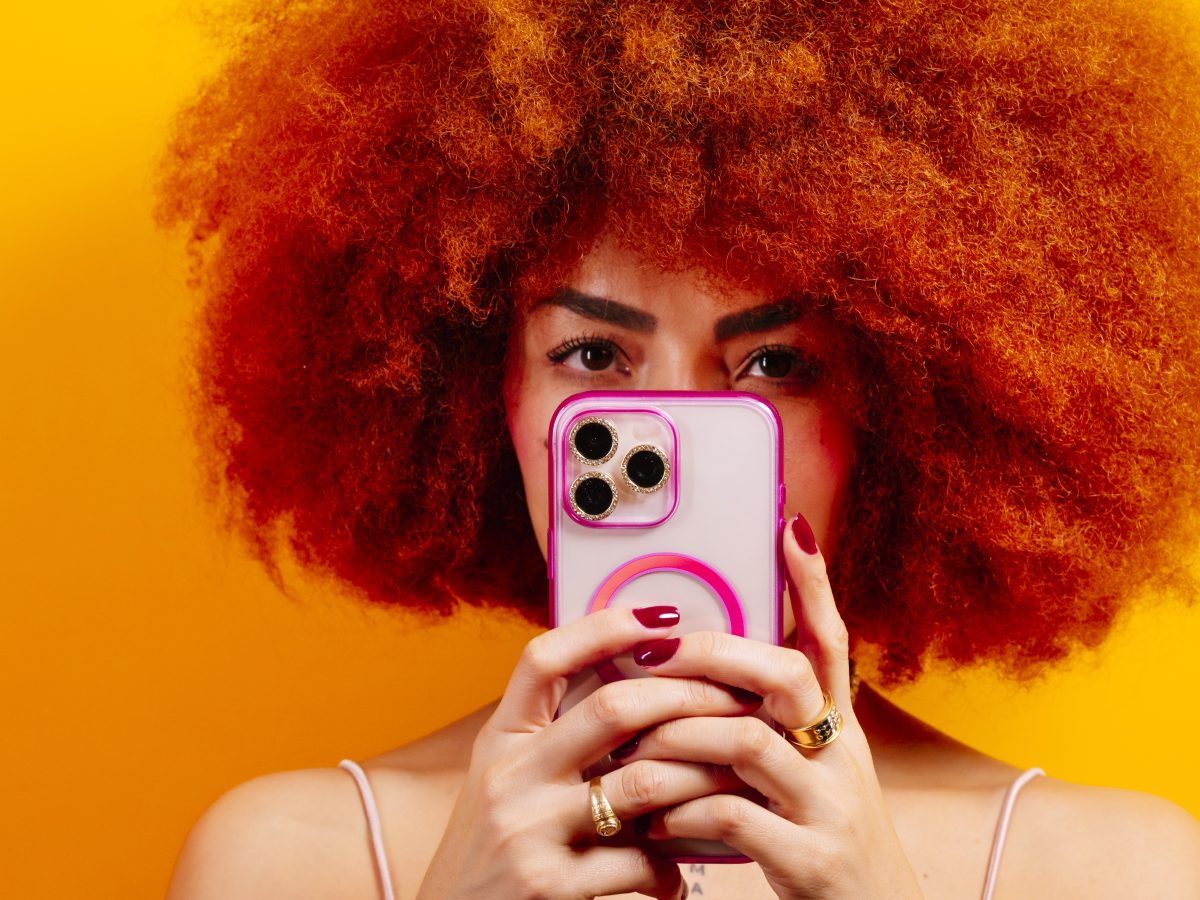
Unless you’ve been living under a rock or are one of the enlightened few blissfully unaware of social media trends, you’ve likely heard the phrase “all gingers are Black.” The question is—where does it come from, and what does it mean? A quick Google or TikTok search (according to Google Trends, queries for “are gingers Black people” have exploded by more than 5,000% over the last 30 days) reveals that TikTok creator Deiaratherootworker is at the center of the frenzy.
Deiara has built an impressive following of more than 230,000 people who are enthralled by her chaotic soliloquies and comical epigrams, which encompass everything from the “Spiritual Meaning of Your Man’s New York Borough” to “How to Make Pizza in a Recession.” On May 6th, Deiara posted the now-viral video declaring that all gingers are Black: “You see a white man with red hair, that’s a Black man. You see a white woman with red hair, that’s a Black woman.”
As a Haitian Voodoo Priestess or Mambo, Deiara believes that Irish people descended from a Haitian deity named Bridgette Samedi. She also references Mitochondrial Eve, the African ancestor who, according to a heavily debated 1987 scientific study, is the common ancestor to all living humans. Whether or not Deiara intended to hand out invitations to the “cookout,” her 23-second video seems to have done just that. Since May 6th, hundreds of redheads have responded with heartfelt messages to the Black community, thanking us for making them feel included.
TikTok user Omnimorris became emotional in his video as he proclaimed that he’s “never felt so seen…” JamflowGinger, through a stream of tears, confessed that she prayed her son would not be born with bright red hair like her and the father of her child because she knew he would be bullied. Unapologetically_ginga had a particularly harrowing story, writing that the physical abuse and harassment he endured led him to contemplate suicide. These eye-opening videos created a safe space for redheads to discuss the prejudices upheld and perpetuated by their communities.
The internet, however, is a public forum, which also cleared the way for less sincere revelations. Many videos began to present proximity to Blackness as a trophy of sorts, turning Black people into props and Black culture into a costume. Numerous white users posted photos of themselves with Black people as “proof” they’ve always been “down.” Videos thick with blaccents and thinly veiled micro-aggressions flew over the heads of a majority of Black TikTokers. One TikTok with 4.7 million views and a caption that reads “us cuz apparently we’re black now” shows four teens taking a knee while making the Black Power fist. The clip was cheekily paired with “Stand Up” by Cynthia Erivo.
At first glance, this may be harmless commentary on the newest internet trend. A closer look, however, reveals something deeper. This video—a clear reference to Colin Kaepernick and the entire Black Lives Matter movement—becomes stale when you consider that before this trend, it’s likely none of these kids were kneeling—or standing—for Black rights. If they had been, there would be no need to make this video, which turns Black pain into a joke they have no right to make.
TikTok user Lauren Venable posted a 72-second video containing a procession of photos spanning her teen and adult years, depicting her with various groups of Black people. In some snapshots, she even wears box braids. The song accompanying the video? “F.E.D.D.” by Saige Michael. The first few lyrics are: “N***a I’m from the dirty south…”
To be clear, there’s absolutely nothing wrong with non-Black people finding friends within the Black community. Everyone deserves to exist in an environment where they feel loved. The problem begins when people believe they’re entitled to Black culture simply because they’ve spent time around Black folks. This belief system often stems from boiling down Black culture to one-dimensional stereotypes and the idea that if a person talks, looks, or dresses a certain way, they can become Black—or, at the very least, stop by the “cookout” and grab a to-go plate whenever it suits them.
Surprisingly, a majority of Black TikTokers commenting under these videos didn’t call out the anti-Blackness. Instead, they reassured the creators of their place within the community. One comment read, “She threw those pics on the table like spades, love it!” Another exclaimed, “Girl, you been black your whole life…a black queen right there.” And someone else added, “I hear the melanin in your voice, auntie!” At the surface level, these comments and attitudes of acceptance may come from a place of kindness and a desire to make all feel welcome. Once interrogated further, though, they reveal the need for the Black community to decenter whiteness and gatekeep just a smidge more.
Still unsure? Ask yourself—has any non-Black person invited you to their “cookout”? As TikToker Melissa Nacional succinctly put it, “You have people that want and love to be welcomed to Black spaces, but they don’t want to welcome Black people into their spaces.”
This isn’t a call to stop being welcoming. Changing who you are to match the prejudice of others is never the answer. What’s important is staying aware and interrogating everything—even a silly little TikTok trend. Because yes, it really is that deep.